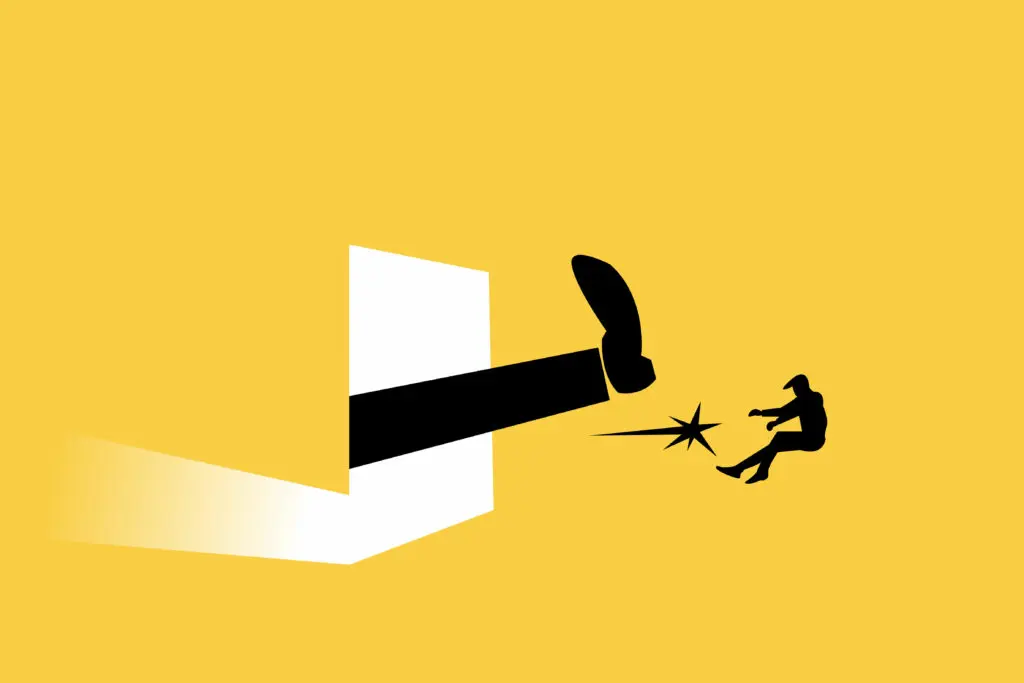How to Handle Conflict Without Losing Your Cool

If you’ve ever been the recipient of someone’s work meltdown, especially when the volume turns to eleven, it is disorienting. You freeze, fume, or fantasize about quitting on the spot. But here’s the truth: conflict is inevitable. How you handle it is optional. Let’s look at handling a shouting match at work without becoming part of the noise.
Dear Dr. Sylvia,
Despite the warm and sunny weather, I want to wear earmuffs at work.
I have an angry co-worker who is constantly ready to fight with everyone. His emotional triggers are causing all of us to duck under our desks. There is simply no psychological safety due to this angry individual.
I once found the courage to ask why he gets so furious about everything.
He responded, “It’s not what you say, it’s how loudly you scream it that gets you heard.”
The positive is that he is good at his job—actually, he’s our top salesperson.
In fact, many of my colleagues and I have read your book Invisible Stress. It helps us stay calm when the “Joe tornado” shows up.
However, his yelling at work is getting old.
Can you please offer some ways to de-escalate the conflict? We are sick of listening to him.
Signed,
Searching for Answers
The Workplace Yeller: Not Just Loud, But Triggered
Dear Searching for Answers
Let’s be real—yelling is rarely about the moment. It’s often the eruption of a stress volcano that’s been bubbling for a while. Old patterns from childhood, unresolved stress, and invisible triggers can explode at the most inconvenient times.
In my work (see Don’t Bring It to Work), I’ve helped thousands identify the real roots of these outbursts. Spoiler: they rarely start at work. The workplace just becomes the stage.
Step One: Don’t Match Fire with Fire
When someone yells, your nervous system will want to go into fight, flight, or freeze. Don’t let it hijack your brain.
Positive Steps to Counter the Upset:
Take a slow breath (yes, seriously, right there).
Lower your voice in response. Calm is contagious.
Maintain open body language and don’t mirror their aggressive posture.
Don’t Add Fuel to the Fire
No yelling back. That’s like throwing gasoline on a bonfire.
Careful not to roll your eyes or smirk—unless you want to be the next target.
Please do not take it personally. It feels personal, but it’s really about them.
Step Two: Understand the Pattern, Not Just the Problem
Anger at work often signals a deeper behavioral pattern. Are they always reacting this way when they feel unheard or criticized?
I have found that people don’t yell because they want to hurt you—they yell because they don’t know how to be heard.
Consider this: are you dealing with a Persecutor Pattern? This is someone who uses volume and intimidation to feel in control. With coaching and insight, even the loudest person in the room can evolve into a powerful visionary (I’ve seen it. Many times).
Step Three: Use the OUT Technique™
From Invisible Stress: It’s Not What YOU Think, here’s a quick tool to shift the energy:
O – Observe your internal reaction without judgment. Are you anxious? Defensive? Angry?
U – Understand where your trigger came from. Did a yelling parent or bully show up in your emotional memory?
T – Transform your reaction. Choose a different path. Take a breath, ask a clarifying question, or even excuse yourself momentarily.
Step Four: Say This, Not That
Here are a few scripts that keep the fire from spreading:
| Situation | Instead of saying… | Try saying… |
|---|---|---|
| When they shout at you | “You need to calm down!” | “I want to hear what you’re saying, and I can do that better when it’s calmer.” |
| When they accuse you | “That’s not true!” | “Let’s slow down and clarify what just happened.” |
| When it’s escalating fast | “I’m not doing this with you.” | “Let’s pause this and come back when we’re both ready to talk constructively.” |
The goal isn’t to “win” the moment. It’s to “win” the relationship.
Step Five: Follow Up or Escalate (Yes, Sometimes You Must)
If this is a one-time event, you might be able to work through it. If it’s a pattern, document it and alert HR or a supervisor. Yelling at work isn’t just unprofessional—it can create a hostile work environment.
You have a right to psychological safety. You’re not weak for needing boundaries. You’re smart.
Bonus: Teach Your Team to Transform Conflict, Not Avoid It
This is bigger than one yelling incident. It’s about changing the emotional culture at work. Offer your team these insights:
- Hold regular debriefs on communication styles.
- Practice emotional intelligence as part of leadership development.
- Use coaching or programs (like Stress Mastery or Total Leadership Connections) to uproot bad behavior and replace it with authentic leadership.
Final Thoughts: Keep Calm and Lead On
You’re not there to fix your coworker’s childhood—but you are responsible for your response.
When voices rise, be the one who doesn’t yell back. Not out of weakness, but out of power.
Tip to remember: True leaders don’t escalate—they elevate.
To your success,
Sylvia Lafair
PS. Have you ever faced a yeller at work? What did you do?
Please share your story or contact us to discuss better ways to navigate your specific situation.


